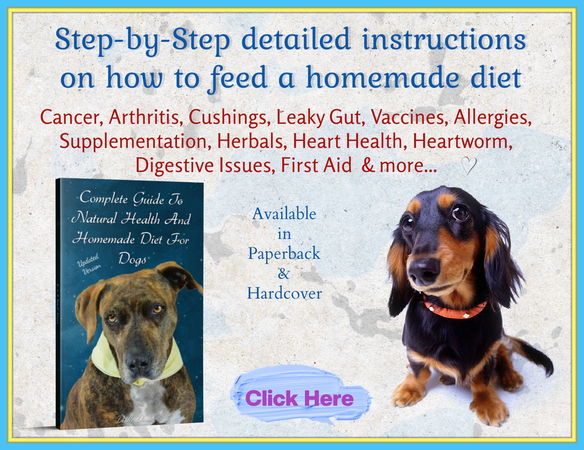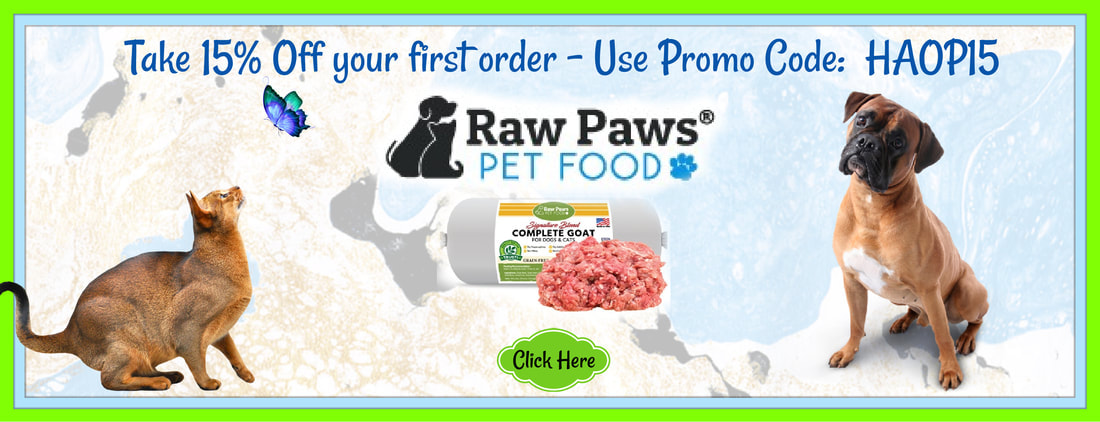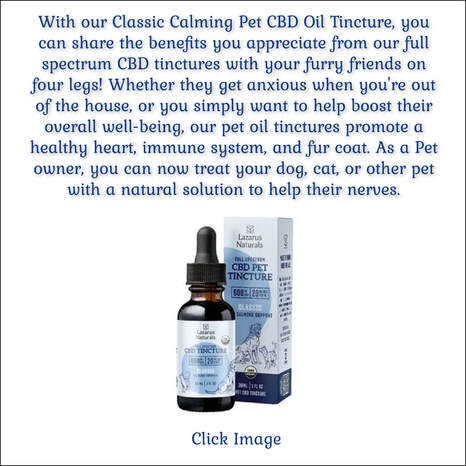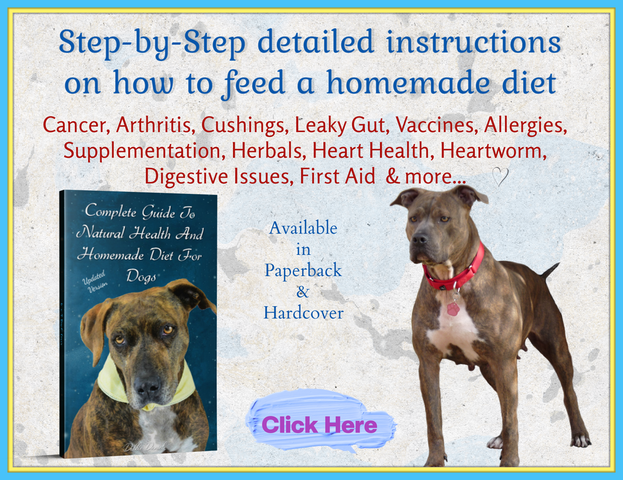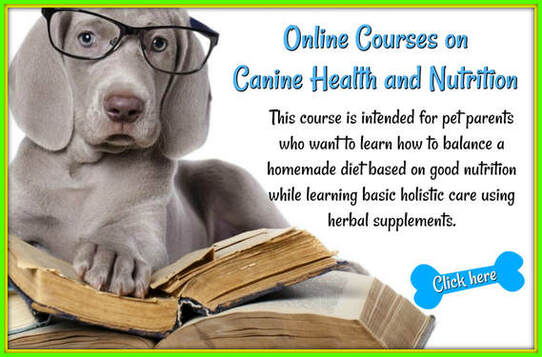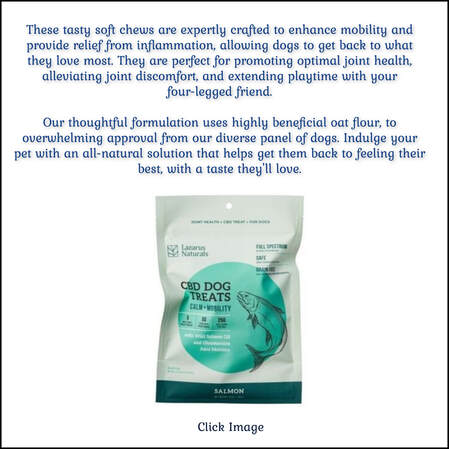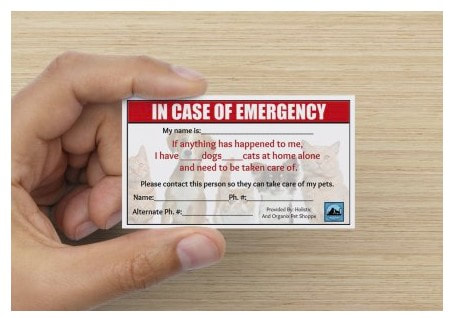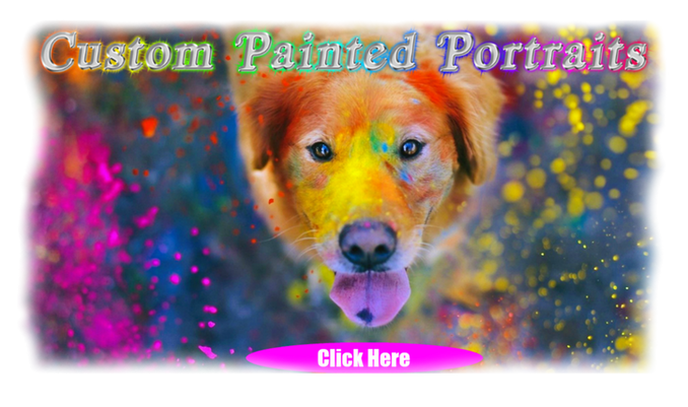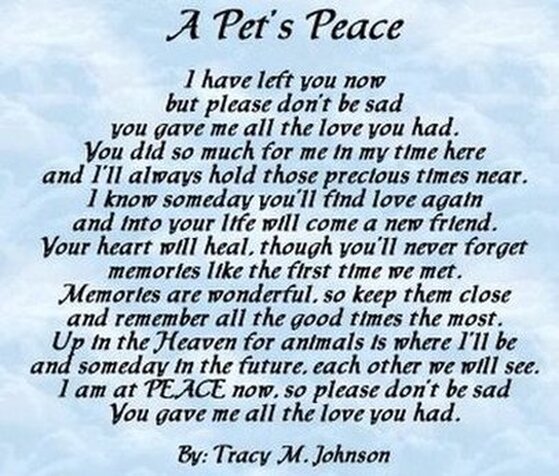
By Mercola.com
When a Pet Dies … How to Deal with Grief and Mourning Especially for folks who haven't been through it, the death of a family pet can be unexpectedly hard to accept.
For children, a beloved pet's passing is often their first experience with significant loss. The powerful feelings of sadness and aloneness that frequently occur after the death of a pet can be difficult for a young person to process.
For adults, the grief can seem almost unbearable. This is particularly true for pet owners who didn't fully understand the depth of the bond they shared with their dog, cat or other animal companion.
Many of us don't anticipate how devastating it can be to lose a non-human family member. Pet owners are often embarrassed by how overwhelmed they feel at their loss – especially in the presence of people who've never shared a special connection with an animal.
If you or someone you know is mourning the death of a pet understand that whatever you're feeling, to whatever degree, is normal and expected. Acknowledging your feelings – allowing them -- is the only healthy way to progress through your grief.
When a Pet Dies … How to Deal with Grief and Mourning Especially for folks who haven't been through it, the death of a family pet can be unexpectedly hard to accept.
For children, a beloved pet's passing is often their first experience with significant loss. The powerful feelings of sadness and aloneness that frequently occur after the death of a pet can be difficult for a young person to process.
For adults, the grief can seem almost unbearable. This is particularly true for pet owners who didn't fully understand the depth of the bond they shared with their dog, cat or other animal companion.
Many of us don't anticipate how devastating it can be to lose a non-human family member. Pet owners are often embarrassed by how overwhelmed they feel at their loss – especially in the presence of people who've never shared a special connection with an animal.
If you or someone you know is mourning the death of a pet understand that whatever you're feeling, to whatever degree, is normal and expected. Acknowledging your feelings – allowing them -- is the only healthy way to progress through your grief.
Ultimately you will come to accept your loss and find the strength to move on from it.
The role companion animals play in the lives of their owners has expanded and deepened over the last few decades.
There seems to be a link between the fading away of the traditional nuclear family, the isolation created by the online world, and the elevated status pets have assumed in the lives of so many people.
Advances in understanding the powerful human-animal bond have also led to an increase in the use of therapy animals for children, the elderly, shut-ins and people with chronic illness. The attachment between therapy animal owners and their pets is often stronger and more enduring than many human-human relationships.
The Process of Grief
When a beloved pet dies, members of his family can expect to move in and out and back and forth through the five stages of grief in much the same way they would if a human family member passed away.
The role companion animals play in the lives of their owners has expanded and deepened over the last few decades.
There seems to be a link between the fading away of the traditional nuclear family, the isolation created by the online world, and the elevated status pets have assumed in the lives of so many people.
Advances in understanding the powerful human-animal bond have also led to an increase in the use of therapy animals for children, the elderly, shut-ins and people with chronic illness. The attachment between therapy animal owners and their pets is often stronger and more enduring than many human-human relationships.
The Process of Grief
When a beloved pet dies, members of his family can expect to move in and out and back and forth through the five stages of grief in much the same way they would if a human family member passed away.
|
Those five stages, a framework originally described by Elisabeth Kűbler-Ross whose pioneering work on the subject of death and dying is required reading in most medical, nursing, psychiatry and theology programs, are:
1. Denial 2. Anger 3. Bargaining 4. Depression 5. Acceptance Denial Denial is a stage many pet owners travel through after a pet has been diagnosed with a terminal illness. |
Denial is your mind’s way of temporarily protecting you from information that is simply too painful to accept at the moment you hear it.
In the short term, denial can help you steel yourself to gradually acknowledge the fact your beloved animal is reaching the end of his life. However, if denial persists, it can rob you of the ability to prepare emotionally for the inevitable.
In the short term, denial can help you steel yourself to gradually acknowledge the fact your beloved animal is reaching the end of his life. However, if denial persists, it can rob you of the ability to prepare emotionally for the inevitable.
Taken to extremes, denial can prevent you from seeking medical help for your sick pet. It can also prompt you to prolong the suffering of a dying animal, which is not something you want to look back on with regret for the rest of your own life.
So while denial can be a useful temporary defense mechanism which allows you to deal with a painful situation on your own terms, it’s important to move beyond it and be realistic about what is happening to your pet, and how you feel about it.
Anger
Feelings of anger, either at the news your pet is dying or after she is gone, is another technique your mind employs to distract you from the pain you’re not yet prepared to experience.
You might resent your pet’s veterinarian because you perceive he didn’t do enough, or he didn’t do it faster – vets are a common target for the anger owners feel at the loss of their pets.
(I disagree with this statement. Many times the vet has given substandard care. Meaning they didn't care enough to help the pet or save its life. I am one of those victims myself and many others.) Don't let this statement fool you. Many times vets ARE at fault. ~HOPS
You might be mad at the disease that has taken your animal, or the drugs or other treatment your pet wasn’t strong enough to survive.
You might be full of rage for the driver of the car that hit your animal, or the aggressive dog that attacked and killed yours.
You may also feel angry at yourself for not doing more to prevent your pet’s illness or death. Unresolved anger directed inward often turns into feelings of guilt and regret.
So while denial can be a useful temporary defense mechanism which allows you to deal with a painful situation on your own terms, it’s important to move beyond it and be realistic about what is happening to your pet, and how you feel about it.
Anger
Feelings of anger, either at the news your pet is dying or after she is gone, is another technique your mind employs to distract you from the pain you’re not yet prepared to experience.
You might resent your pet’s veterinarian because you perceive he didn’t do enough, or he didn’t do it faster – vets are a common target for the anger owners feel at the loss of their pets.
(I disagree with this statement. Many times the vet has given substandard care. Meaning they didn't care enough to help the pet or save its life. I am one of those victims myself and many others.) Don't let this statement fool you. Many times vets ARE at fault. ~HOPS
You might be mad at the disease that has taken your animal, or the drugs or other treatment your pet wasn’t strong enough to survive.
You might be full of rage for the driver of the car that hit your animal, or the aggressive dog that attacked and killed yours.
You may also feel angry at yourself for not doing more to prevent your pet’s illness or death. Unresolved anger directed inward often turns into feelings of guilt and regret.
It’s important to understand most of us, most of the time, are doing the best we know how to do. That’s why feelings of guilt and regret, while very common after the death of a pet, only serve to prolong your misery.
We learn as we live. The best any of us can do is to apply the lessons of the past to our lives going forward. If you feel you could have done a better job caring for a pet that has passed, what better way to honor him than to use that knowledge to improve the quality of life for a current or new furry family member?
As with denial, it’s important to move through feelings of anger, guilt and regret at the loss of a pet. You don’t want to get stuck at any phase in the grief process, as the only way to recover from loss is to put one foot in front of the other until you’ve traveled the entire distance.
Bargaining
In the bargaining stage, pet owners might try to make “deals” with a higher power to forestall death. For example, the owner of a terminally ill pet may ask the heavens to shorten his own life in return for more time with his dying animal.
Bargaining can also take the form of deal-making with oneself or even the dying pet in a desperate bid to pre-empt the inevitable.
Depression
Depression typically precedes the final stage of grief, which is acceptance.
Sadness and emptiness are often accompanied by a feeling of being weighed down with the heaviness of grief. It’s a physical sensation that can be frightening and at times seem intolerable.
As painful as this stage can be, it is the one you must reach in order to move through and past the loss of a dearly loved pet. The feelings in this stage are what the prior grief stages of denial, anger and bargaining aim to protect you from.
The depression stage of grief is the one most crucial for your healing. Too many people try to circumvent the painful feelings at this stage of the process, but feel them you must in order to reach acceptance and recovery from your loss.
Death is a function of life, and the painful feelings that come with it are not meant to be avoided.
Depression, like the stages that precede it, is only helpful if you travel through it toward acceptance. Getting stuck at this stage can move you from necessary feelings of grief and sadness to a level of despondency that requires professional intervention.
We learn as we live. The best any of us can do is to apply the lessons of the past to our lives going forward. If you feel you could have done a better job caring for a pet that has passed, what better way to honor him than to use that knowledge to improve the quality of life for a current or new furry family member?
As with denial, it’s important to move through feelings of anger, guilt and regret at the loss of a pet. You don’t want to get stuck at any phase in the grief process, as the only way to recover from loss is to put one foot in front of the other until you’ve traveled the entire distance.
Bargaining
In the bargaining stage, pet owners might try to make “deals” with a higher power to forestall death. For example, the owner of a terminally ill pet may ask the heavens to shorten his own life in return for more time with his dying animal.
Bargaining can also take the form of deal-making with oneself or even the dying pet in a desperate bid to pre-empt the inevitable.
Depression
Depression typically precedes the final stage of grief, which is acceptance.
Sadness and emptiness are often accompanied by a feeling of being weighed down with the heaviness of grief. It’s a physical sensation that can be frightening and at times seem intolerable.
As painful as this stage can be, it is the one you must reach in order to move through and past the loss of a dearly loved pet. The feelings in this stage are what the prior grief stages of denial, anger and bargaining aim to protect you from.
The depression stage of grief is the one most crucial for your healing. Too many people try to circumvent the painful feelings at this stage of the process, but feel them you must in order to reach acceptance and recovery from your loss.
Death is a function of life, and the painful feelings that come with it are not meant to be avoided.
Depression, like the stages that precede it, is only helpful if you travel through it toward acceptance. Getting stuck at this stage can move you from necessary feelings of grief and sadness to a level of despondency that requires professional intervention.
Acceptance
The final stage of the grief process is acceptance. It’s the point at which your “new normal” no longer feels new – you’ve integrated the loss of your pet into your lifestyle.
When you think of your pet, you experience fond memories rather than the pain of her passing.
Acceptance of the death of your pet isn’t a joyous stage. You shouldn’t expect to feel happy, but you can look forward to a sense of calm as you come to terms with the fact of your pet’s mortality.
Each of us experiences death and the grieving process differently. How deeply and how long you mourn will depend on many factors, including:
· Your age
· The circumstances of your pet’s death
· The relationship you and other family members shared with your pet
· Other stressful events or losses around the time of your pet’s passing
Tips for Helping Children Cope
Children tend to move through grief more quickly than adults, especially when the subject is dealt with honestly and patiently. Prepare for your child to return to the subject again and again until she has sorted things out for herself.
The final stage of the grief process is acceptance. It’s the point at which your “new normal” no longer feels new – you’ve integrated the loss of your pet into your lifestyle.
When you think of your pet, you experience fond memories rather than the pain of her passing.
Acceptance of the death of your pet isn’t a joyous stage. You shouldn’t expect to feel happy, but you can look forward to a sense of calm as you come to terms with the fact of your pet’s mortality.
Each of us experiences death and the grieving process differently. How deeply and how long you mourn will depend on many factors, including:
· Your age
· The circumstances of your pet’s death
· The relationship you and other family members shared with your pet
· Other stressful events or losses around the time of your pet’s passing
Tips for Helping Children Cope
Children tend to move through grief more quickly than adults, especially when the subject is dealt with honestly and patiently. Prepare for your child to return to the subject again and again until she has sorted things out for herself.
· Don’t apply spin. Discuss death honestly, without inadvertently instilling fear in your child about (for example), God (“God took your cat”), sleep (“Your dog was put to sleep”), or your veterinarian (“Dr. Smith sent Fluffy to heaven”). Don’t try to ease the blow by using words that make death seem like a temporary condition.
· Encourage open discussion. Make it safe and comfortable for your child to ask questions, talk freely, and share his feelings about the death of his pet.
· Tell your child’s teacher, sitter or daycare worker. Make sure any other caretakers in your child’s daily life are aware of the death of her pet. Let them know how you’re handling the situation so everyone involved with your child is aware and on the same page.
Should I Get Another Pet? Like the grief process, the decision of whether and when to bring another pet into the family is a highly individual one.
When a dearly loved companion animal dies, most people want only to have their pet back with them again. The thought of a “replacement pet” is incomprehensible to many who’ve just lost an animal.
· Encourage open discussion. Make it safe and comfortable for your child to ask questions, talk freely, and share his feelings about the death of his pet.
· Tell your child’s teacher, sitter or daycare worker. Make sure any other caretakers in your child’s daily life are aware of the death of her pet. Let them know how you’re handling the situation so everyone involved with your child is aware and on the same page.
Should I Get Another Pet? Like the grief process, the decision of whether and when to bring another pet into the family is a highly individual one.
When a dearly loved companion animal dies, most people want only to have their pet back with them again. The thought of a “replacement pet” is incomprehensible to many who’ve just lost an animal.
Other folks begin an immediate search for a new four-legged family member to bring into the fold.
In my experience, people who share their lives with animals are compelled to do so no matter how many times their hearts break at the passing of a much loved pet.
What’s important is not so much the timing as the consensus of family members and the ability of everyone to view the new pet as an individual.
Especially if the new guy is the same breed or very similar in appearance to the deceased pet, it’s easy to have expectations of a new furry family member that she may or may not be able to live up to.
For information on end-of-life pet services like euthanasia, burial, cremation, urns and other memorials, visit Loving Memorial Pet Care, an organization I recommend to my Natural Pet animal hospital clients in the Chicago area. Or look for a provider of similar services in your area.
In my experience, people who share their lives with animals are compelled to do so no matter how many times their hearts break at the passing of a much loved pet.
What’s important is not so much the timing as the consensus of family members and the ability of everyone to view the new pet as an individual.
Especially if the new guy is the same breed or very similar in appearance to the deceased pet, it’s easy to have expectations of a new furry family member that she may or may not be able to live up to.
For information on end-of-life pet services like euthanasia, burial, cremation, urns and other memorials, visit Loving Memorial Pet Care, an organization I recommend to my Natural Pet animal hospital clients in the Chicago area. Or look for a provider of similar services in your area.
The Moment After: Surviving Pet Loss
by Moira Anderson Allen, M.Ed.
The world has just ended. Your pet -- your friend, your confidante, the companion who was always there for you -- has died. Dog, cat, horse, bird, hamster, ferret -- species doesn't matter. Age doesn't matter. All that matters is the huge hole that has just entered your life. That, and the grief.
Conventional wisdom suggests that I devote this column -- call it "the moment after" column -- to tips on how to start feeling better. But if your pet has died within the past few hours or days, you may not be able to even imagine feeling better. You may be wondering how you can even survive. You may also not want to feel better. Painful as it is, that ragged, miserable hole may seem all you have left of your pet, and you may not want to get rid of it just yet. The thought of "feeling better" too quickly may actually seem disrespectful. You may feel that you owe your pet a period of grief, of pain. "Feeling better" may seem a lot like "letting go," and you may not be ready to do that yet.
That's OK. Grief and mourning aren't some sort of awkward, embarrassing mental lapses that should be "gotten over" or "healed" as soon as possible. In reality, grief is our final expression of love, the last gift we have to offer. It isn't to be rushed. Instead of trying to "get over it," we must find ways to "get through it" -- and that can take awhile.
So, for this first column, I'm not going to talk about how to "heal." I'm going to talk about how to survive.
The world has just ended. Your pet -- your friend, your confidante, the companion who was always there for you -- has died. Dog, cat, horse, bird, hamster, ferret -- species doesn't matter. Age doesn't matter. All that matters is the huge hole that has just entered your life. That, and the grief.
Conventional wisdom suggests that I devote this column -- call it "the moment after" column -- to tips on how to start feeling better. But if your pet has died within the past few hours or days, you may not be able to even imagine feeling better. You may be wondering how you can even survive. You may also not want to feel better. Painful as it is, that ragged, miserable hole may seem all you have left of your pet, and you may not want to get rid of it just yet. The thought of "feeling better" too quickly may actually seem disrespectful. You may feel that you owe your pet a period of grief, of pain. "Feeling better" may seem a lot like "letting go," and you may not be ready to do that yet.
That's OK. Grief and mourning aren't some sort of awkward, embarrassing mental lapses that should be "gotten over" or "healed" as soon as possible. In reality, grief is our final expression of love, the last gift we have to offer. It isn't to be rushed. Instead of trying to "get over it," we must find ways to "get through it" -- and that can take awhile.
So, for this first column, I'm not going to talk about how to "heal." I'm going to talk about how to survive.
Ten Ways to Hang On
When you face that huge emptiness inside, it's tempting to just give yourself over to grief. At the same time, a certain amount of survival instinct reminds you that you still need to do something to keep going. But what? Grief makes it hard to think, to plan. What can you do to keep that hole from swallowing you?
1) Eat something. You may not feel hungry, but food is important. Grief burns a lot of energy; you need fuel. Eat something that makes you feel good -- and if that happens to be a huge slice of chocolate cake, well, this is no time to worry about your diet. Me, I like tomato soup; it reminds me of sitting warm and snug by a fire while the rain beats on the windows. If you can't face a full meal, nibble. Eat now, whether you want to or not.
2) Cry. Cry as much as you want to, whenever you feel like it. Take the day off from work. If you can spend even one day crying whenever you need to, it will make it much, much easier to face the next day.
3) Find something to do. This may seem trite, but focusing on a task really does help. Finding a project to complete, a task to accomplish, helps you focus on the world (and the "you") that exists outside that hole. It's not a distraction, and it won't make your grief go away. It simply helps you adjust your perception, to recognize that while grief is part of your life, it isn't the sum total of your life.
When you face that huge emptiness inside, it's tempting to just give yourself over to grief. At the same time, a certain amount of survival instinct reminds you that you still need to do something to keep going. But what? Grief makes it hard to think, to plan. What can you do to keep that hole from swallowing you?
1) Eat something. You may not feel hungry, but food is important. Grief burns a lot of energy; you need fuel. Eat something that makes you feel good -- and if that happens to be a huge slice of chocolate cake, well, this is no time to worry about your diet. Me, I like tomato soup; it reminds me of sitting warm and snug by a fire while the rain beats on the windows. If you can't face a full meal, nibble. Eat now, whether you want to or not.
2) Cry. Cry as much as you want to, whenever you feel like it. Take the day off from work. If you can spend even one day crying whenever you need to, it will make it much, much easier to face the next day.
3) Find something to do. This may seem trite, but focusing on a task really does help. Finding a project to complete, a task to accomplish, helps you focus on the world (and the "you") that exists outside that hole. It's not a distraction, and it won't make your grief go away. It simply helps you adjust your perception, to recognize that while grief is part of your life, it isn't the sum total of your life.
4) Count your blessings. When you lose a loved one, it's hard to focus on anything positive. Unless your circumstances are truly dreadful, however, chances are that your pet was not the only good thing in your life. Remind yourself of some of the good things that you still have by deliberately reviewing a list of your "blessings" -- such as your family, your remaining pets, your friends, your interests. Review them in your head, or write them down. Again, these don't fill the hole -- but they do remind you that there is a world outside that hole, and that you are still part of it.
5) Reflect on things that don't involve your pet. The loss of your pet may seem to touch every aspect of your life, but in reality, it hasn't changed everything. Reflect on the things it hasn't changed -- the things that you did and enjoyed without your pet. When my cat died of cancer, I forced myself to remember that "The loss of my pet doesn't take away my ability to enjoy long talks with my husband. It doesn't take away my ability to write. It doesn't take away my ability to read a good book. It doesn't take away my ability to create beautiful things. It doesn't take away my ability to enjoy a long walk on the beach..." Focus on those things that your pet didn't "touch" while it was alive -- and you'll be reminded of the things that haven't really been "touched" by its death.
6) Cuddle something furry. If you have another pet, give it some extra cuddle time -- even though part of your mind is thinking that this isn't the pet you want to cuddle. It's still warm, and furry, and may be very confused and concerned right now. If you don't have another pet, consider cuddling a stuffed animal. Spouses are nice, but you need fur. Curl up in bed with a stuffed animal and a heating pad; it's lots better than lying in the dark wishing you had something furry to touch.
5) Reflect on things that don't involve your pet. The loss of your pet may seem to touch every aspect of your life, but in reality, it hasn't changed everything. Reflect on the things it hasn't changed -- the things that you did and enjoyed without your pet. When my cat died of cancer, I forced myself to remember that "The loss of my pet doesn't take away my ability to enjoy long talks with my husband. It doesn't take away my ability to write. It doesn't take away my ability to read a good book. It doesn't take away my ability to create beautiful things. It doesn't take away my ability to enjoy a long walk on the beach..." Focus on those things that your pet didn't "touch" while it was alive -- and you'll be reminded of the things that haven't really been "touched" by its death.
6) Cuddle something furry. If you have another pet, give it some extra cuddle time -- even though part of your mind is thinking that this isn't the pet you want to cuddle. It's still warm, and furry, and may be very confused and concerned right now. If you don't have another pet, consider cuddling a stuffed animal. Spouses are nice, but you need fur. Curl up in bed with a stuffed animal and a heating pad; it's lots better than lying in the dark wishing you had something furry to touch.
7) Avoid irrevocable decisions. Don't do anything you can't undo. For example, if you can't stand the sight of your pet's toys, don't throw them away -- put them out of sight. A week or a month from now, you may wish you had them again, perhaps to incorporate into a memorial, and you'll bitterly regret any hasty actions that can't be undone. Similarly, don't rush out and get a new pet until you've had time to think.
8) Replace negative imagery. The last moments of your pet's life can become a powerful image -- whether you witnessed them or not. Unless you want that image to overwhelm your positive memories, start working on replacing it with something more pleasant. If you believe that pets go on to an afterlife, for example, try replacing the image of the "last" moment of your pet's life with the "next" moment: The moment it arrives, healthy and whole, on the other side. What happens then? Who greets it? What does it do? Fill your mind with "the moment after." If you don't believe in an afterlife, concentrate on the special things you did for your pet to make this life a blessing for it.
9) Be honest with yourself. You've been wounded, and you hurt. You're not weak, crazy, or overly sentimental to feel this way. Even if you have to put on a "brave face" for the rest of the world, don't try to fool yourself into thinking that you're not really in all that much pain. If you cut your hand off, it wouldn't help to get angry with yourself for bleeding -- and losing your pet is a lot like losing a part of yourself. You will hurt, and it will take time to heal.
8) Replace negative imagery. The last moments of your pet's life can become a powerful image -- whether you witnessed them or not. Unless you want that image to overwhelm your positive memories, start working on replacing it with something more pleasant. If you believe that pets go on to an afterlife, for example, try replacing the image of the "last" moment of your pet's life with the "next" moment: The moment it arrives, healthy and whole, on the other side. What happens then? Who greets it? What does it do? Fill your mind with "the moment after." If you don't believe in an afterlife, concentrate on the special things you did for your pet to make this life a blessing for it.
9) Be honest with yourself. You've been wounded, and you hurt. You're not weak, crazy, or overly sentimental to feel this way. Even if you have to put on a "brave face" for the rest of the world, don't try to fool yourself into thinking that you're not really in all that much pain. If you cut your hand off, it wouldn't help to get angry with yourself for bleeding -- and losing your pet is a lot like losing a part of yourself. You will hurt, and it will take time to heal.
10) Make a decision to work through grief. You've heard the saying, "Time heals all wounds." That isn't true. Time doesn't heal all physical wounds (try cutting off your hand and just ignoring it!) -- and it doesn't heal all emotional wounds either.
I've met people whose grief has persisted for years: They're just as upset, just as angry, just as miserable over their loss as they were the day it happened. Such people tend to be consumed with bitterness, obsessing over their loss -- and not only do they suffer, but they also bring suffering to everyone around them.
Grief is normal, but it is also seductive. It's very tempting to let it "take over." Before you do, think about how you feel today, and ask yourself if you want to feel exactly the same way in six months, or a year. Notice that I'm not asking you to decide how you want to feel today. Today, you may not have much choice -- any more than you could choose not to feel pain if you were physically injured. Your decision about how to manage that injury, however, would be crucial in determining whether, a year from now, you are healed -- or crippled.
The same is true of grief. You can't control whether or not you grieve. But you can decide whether or not to let that grief control you. And these ten "survival steps" are a good way to ensure that it doesn't!
I've met people whose grief has persisted for years: They're just as upset, just as angry, just as miserable over their loss as they were the day it happened. Such people tend to be consumed with bitterness, obsessing over their loss -- and not only do they suffer, but they also bring suffering to everyone around them.
Grief is normal, but it is also seductive. It's very tempting to let it "take over." Before you do, think about how you feel today, and ask yourself if you want to feel exactly the same way in six months, or a year. Notice that I'm not asking you to decide how you want to feel today. Today, you may not have much choice -- any more than you could choose not to feel pain if you were physically injured. Your decision about how to manage that injury, however, would be crucial in determining whether, a year from now, you are healed -- or crippled.
The same is true of grief. You can't control whether or not you grieve. But you can decide whether or not to let that grief control you. And these ten "survival steps" are a good way to ensure that it doesn't!
Coping with Sorrow on the Loss of Your Pet
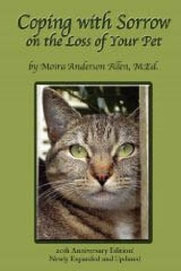
Coping with Sorrow on the Loss of Your Pet provides a wealth of compassionate advice and specific coping strategies to help you deal with the loss of a pet. This book calls upon the experiences and suggestions of dozens of pet owners across the U.S. who have dealt with loss. It covers the following topics:
Chapter 1: Understanding Your Loss
The Value of a Pet Chapter 2: Emotional Reactions
Anger · Guilt · Denial · Depression
(Read this chapter online!)
Chapter 3: Coping Strategies
Acknowledging Your Feelings · Adjusting to Your Loss
Chapter 4: A Family Affair
Sharing the Healing · Helping Children Cope · Four-Legged Family Members
Chapter 5: Welcoming a New Pet
What Your Pet Would Want · When is the Right Time? · Not a Replacement
Chapter 6: The Most Painful Decision
Euthanasia and Guilt · Knowing When It's Time · Being There · Easing the Passage
Chapter 7: Choosing a Final Resting Place
Veterinary or Shelter Disposal · Home Burial · Cemetery Burial · Cremation · Preservation
Chapter 8: The Missing Pet
Prevention · Emergencies and Disasters · Recovery
Chapter 9: Where There's a Will
Wills and Codicils · Finding the Right Guardian · Euthanasia · Documentation
Chapter 10: Giving Up a Pet
A Special Kind of Grief · What Next? · When the Day Comes
Chapter 11: Helping a Friend
Ten Tips for Helping Others · Some Pitfalls to Avoid
Chapter 1: Understanding Your Loss
The Value of a Pet Chapter 2: Emotional Reactions
Anger · Guilt · Denial · Depression
(Read this chapter online!)
Chapter 3: Coping Strategies
Acknowledging Your Feelings · Adjusting to Your Loss
Chapter 4: A Family Affair
Sharing the Healing · Helping Children Cope · Four-Legged Family Members
Chapter 5: Welcoming a New Pet
What Your Pet Would Want · When is the Right Time? · Not a Replacement
Chapter 6: The Most Painful Decision
Euthanasia and Guilt · Knowing When It's Time · Being There · Easing the Passage
Chapter 7: Choosing a Final Resting Place
Veterinary or Shelter Disposal · Home Burial · Cemetery Burial · Cremation · Preservation
Chapter 8: The Missing Pet
Prevention · Emergencies and Disasters · Recovery
Chapter 9: Where There's a Will
Wills and Codicils · Finding the Right Guardian · Euthanasia · Documentation
Chapter 10: Giving Up a Pet
A Special Kind of Grief · What Next? · When the Day Comes
Chapter 11: Helping a Friend
Ten Tips for Helping Others · Some Pitfalls to Avoid




